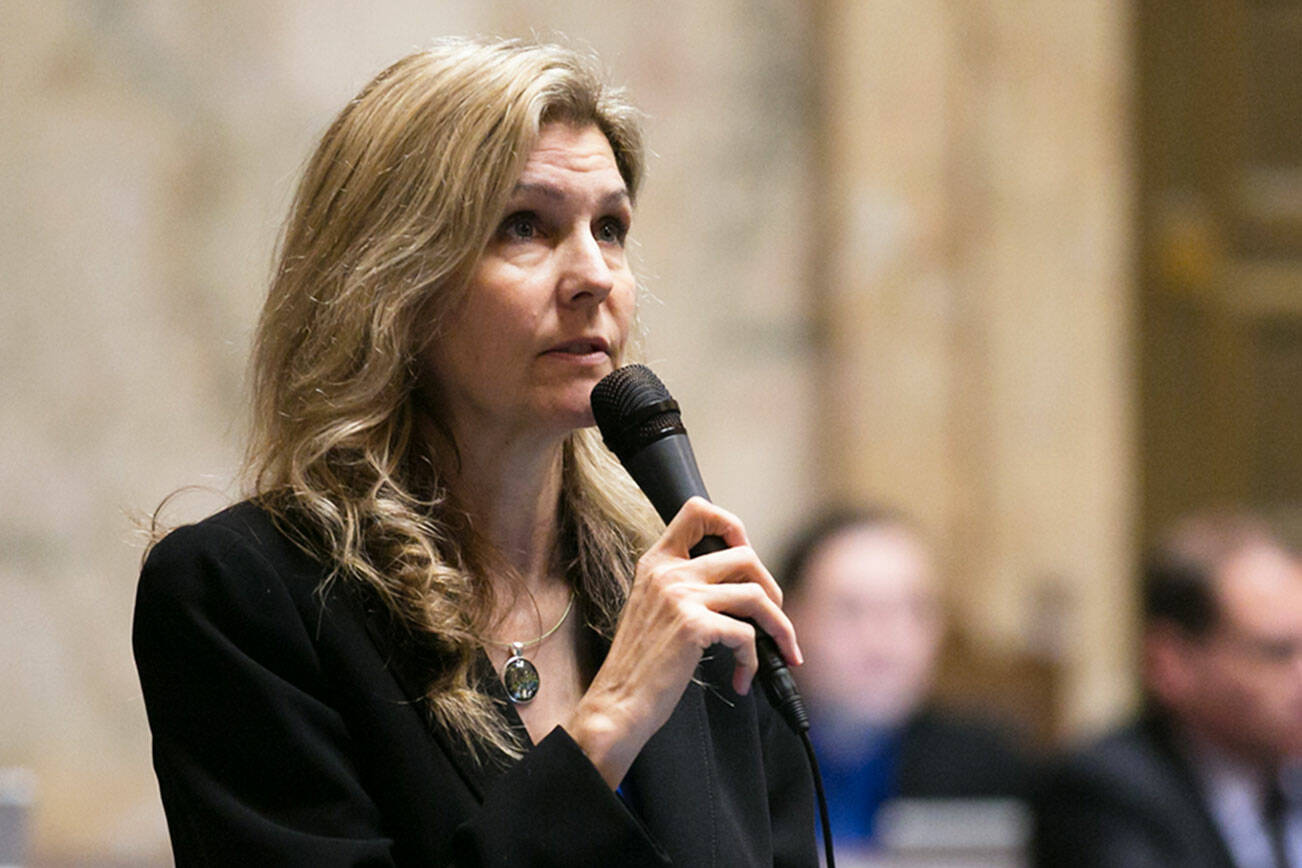A new law, authored by State Rep. Tina Orwall, D-Des Moines, will help close equity gaps in Washington’s public and charter schools by establishing a language access program with interpreters to improve family engagement within the state’s education system.
Gov. Jay Inslee signed House Bill 1153 into law on March 23.
“It has been a very long journey and, while I am proud and truly happy that we finally reached our goal, I am first and foremost grateful for the community’s invaluable support and encouragement over years of perseverance, and for the solid partnerships established with colleagues in both chambers and both caucuses,” Orwall said in a March 23 Washington House Democrats news release.
Orwall pointed out that some school districts in Washington have over 137 languages spoken in their students’ homes (Kent School District has 130) and that the bill stemmed from a meeting, five years ago, with parents who were left out of their kids’ education, children who had to interpret for teachers, and interpreters who didn’t have the resources to help students succeed.
“So, there was a very real need and a strong case for this legislation,” Orwall said. “Today’s accomplishment is owed to so many people and so much work, and what it represents is hope for parents who will have a path paved with the supports and services necessary for them to become active players in their children’s education.”
The measure embraces best practices to assist school districts on ways to better serve families with language access needs. It will provide a credential process and training program for interpreters. The language access program will train interpreters on the specific language and programs used within the education system so they can communicate effectively with families, according to the news release.
The bill directs the Office of the Superintendent of Public Instruction (OSPI) to develop language access program standards and a credentialing process, and to collaborate on ways to support more interpreters and language access coordinators in school settings.
HB 1153 passed the House on an 83-13 vote in early February and the Senate on a 43-5 vote March 2, after amending it to delay implementation by one year and exempting school districts that have fewer than 1,000 enrolled students and less than 10% English learner enrollment. The House concurred 86-12 with the Senate changes on March 8.
Orwall’s legislation will:
• Ensure that school districts have language access plans that contain best practices including policies and procedures for access interpretation services. This is especially important for high stake meetings such as Individual Education Plan (IEP) meetings where specific behaviors need to be addressed.
• Establish ‘language access navigators’ for schools that have a high percentage of different languages spoken and of English Language Learners (ELL).
• Create a partnership between OSPI and the Washington State School Directors Association (WSSDA) to create best practices around the credentialing process for interpreters and for language access plans.
School districts must implement a language access program by the 2023-2024 school year. The state plans to fund the program, but has not released a total cost.
It would cost about $140,000 per year for a full-time language access coordinator in a district, according to the fiscal note package attached to the bill. A district the size of Kent (20,000 to 30,000 students) would probably require two full-time employees to run the program.
School districts and charter schools with at least 50% English learner enrollment or greater than 75 languages used by students or families, must either have a full-time language access coordinator or annually report to the OSPI the total number of hours district staff spent performing the language access coordinator duties and other information. The duties of a language access coordinator are specified and include serving as the primary contact for families, community members, school district staff, and agency staff and delivering language assistance training and support to school staff.
The measure was refined in partnership with advocacy groups, education stakeholders, and OSPI. Orwall commended Open Doors and One America for their work with culturally and linguistically diverse families, many of whom have children with intellectual and developmental disabilities. She underscored that their support to move this legislation forward had been vital.
“I am thrilled to see community feedback becoming a bill… and now, Washington state law,” said Moses Perez, program manager of Open Doors for Multicultural Families. “It makes me feel proud to live in a state where bipartisan support is still possible in crucial spaces like our public schools. For multicultural families, especially those who have loved ones with intellectual and/or developmental disabilities, this law will make the greatest difference in allowing parents to be part of their child’s education.”
Kaitie Dong, leadership development and education manager at OneAmerica, also is pleased with the new law.
“Immigrants and refugees have long seen and pursued education as an opportunity for a successful life in the United States,” Dong said. “With this bill, immigrant and refugee families in Washington will have the structures and services to fully and meaningfully be a part of their student’s education, while also feeling that their first language and their culture are valuable.
“We celebrate this monumental win for immigrants, refugees, and families with disabilities, as a pivotal step in our work toward a world where historically marginalized communities have equitable access to a quality K-12 education where their needs are centered, and their cultures are celebrated.”
Talk to us
Please share your story tips by emailing editor@kentreporter.com.
To share your opinion for publication, submit a letter through our website https://www.kentreporter.com/submit-letter/. Include your name, address and daytime phone number. (We’ll only publish your name and hometown.) Please keep letters to 300 words or less.

